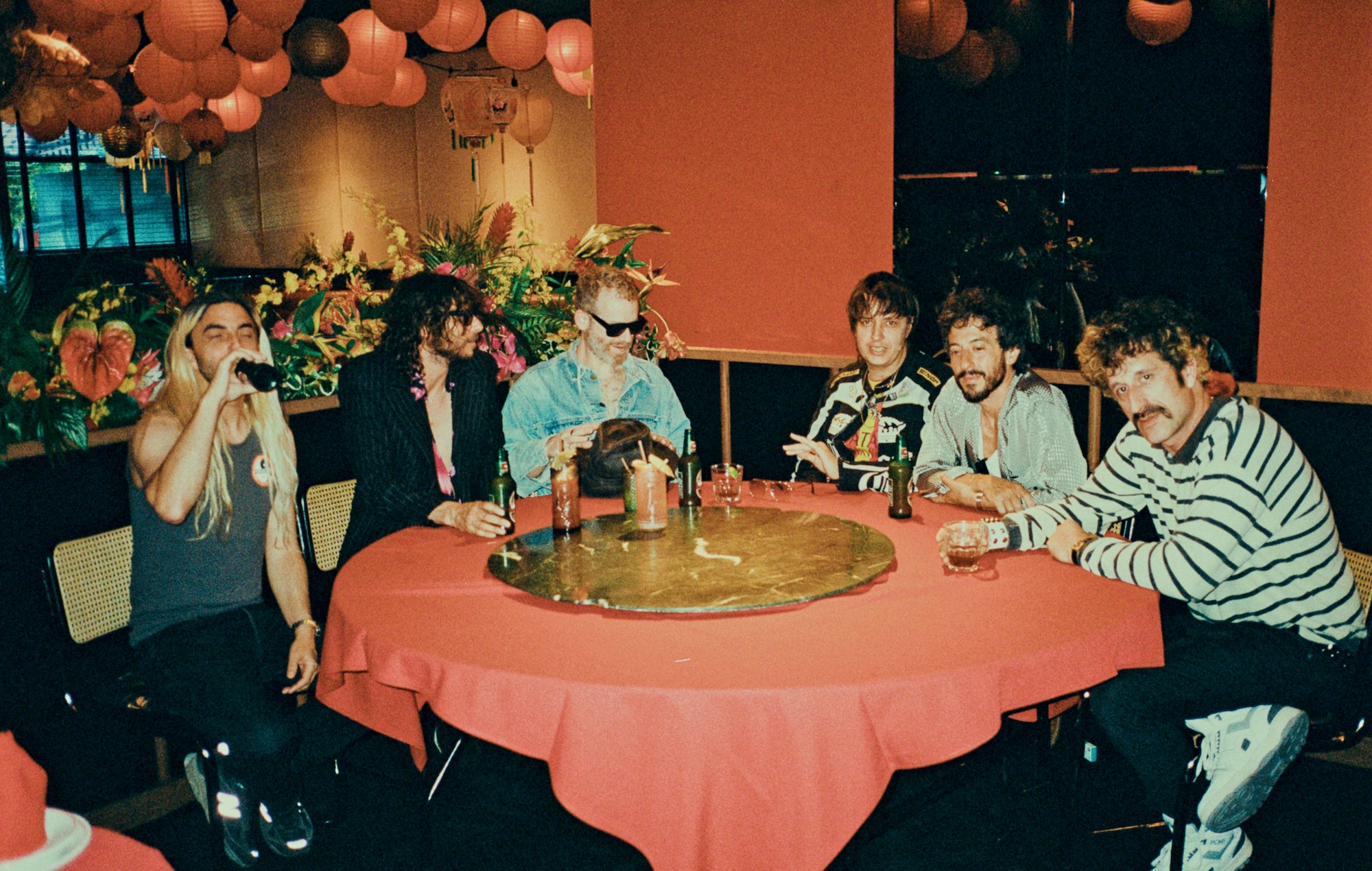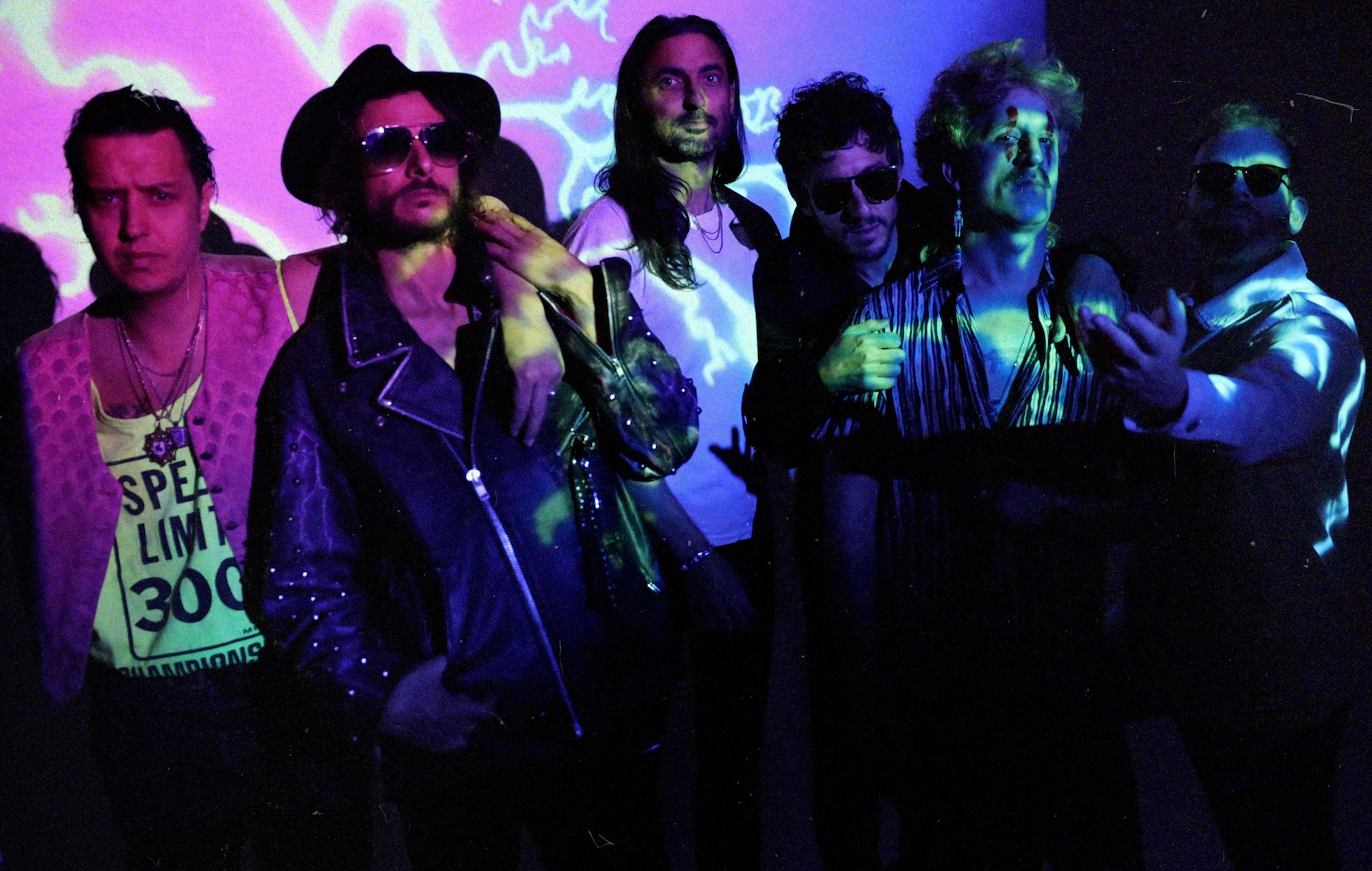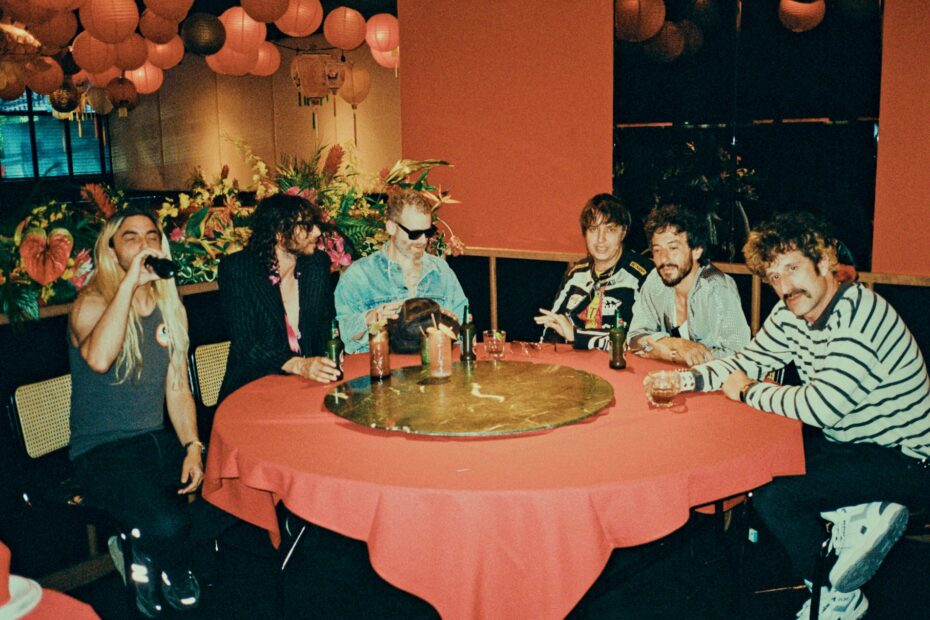
J ulian Casablancas has one mission. It’s been the driving force behind his music since he co-founded The Strokes in 1997 and still pushes him forward now with The Voidz, his self-proclaimed “prison jazz” gang. He wants to and has always wanted to take the sounds and styles that live at the more obscure end of music’s spectrum and usher them into the mainstream. That statement might seem incongruous with the band that made him a global star – the sound of those first Strokes albums is, after all, still being lifted wholesale by bands hoping to follow in their footsteps – but when they first took over the dive bars and tiny venues of New York, then London, then the world, music was in a safe, beige place.
- READ MORE: The Strokes live in London: a brilliant balancing act, despite sound issues
With The Voidz, that aim has never been in doubt. When they first emerged in 2013, they confounded many – especially those expecting Casablancas to continue down the path of his solo album ‘Phrazes For The Young’. Instead, the mulleted misfits’ debut album ‘Tyranny’ was an out-of-left-field mix of experimental art-punk and heavily processed robo-vocals that felt like they were playing under an apocalyptic shadow. Its songs rarely spanned less than five minutes and often longer, like the 11-minute ‘Human Sadness’ – still the most beautifully odd and affecting thing Casablancas has made to date. It made things very clear: we weren’t in the Mercury Lounge circa 2001 anymore.
A decade on, their fourth record, ‘Like All Before You’, continues that approach, jagged metal riffs pummelling away between vocals Auto-Tuned into a mechanised delivery and melodies and rhythms dripping in Middle Eastern influence. These are largely not the sounds of the mainstream that Casablancas hopes to infiltrate.
“I’d say it’s going pretty well,” he responds when NME asks him to take stock of his mission ahead of the release of The Voidz’s fourth album. He’s speaking to us over video call from his home in upstate New York – or his “underground bunker, undisclosed location”, as he jokingly puts it – slowly spinning in his chair in front of an aggressively red-and-black patterned wall. He avoids looking at the camera as he holds his phone aloft, gazing off to his right as he thinks. After this long in the music business, he’s realistic about the pace at which he can achieve his goal.
“The journey of boundary-pushing music being mainstream is a positive, inspiring, artistic feat”
“You can’t just expect things to happen [the way] you want,” he shrugs. “You always want to put something out and have everyone say, ‘Oh my god, this is the greatest thing of all time! You win the award for greatest thing ever!’ In reality, things take a long time, and I’ve always just tried to put my head down and make things that are good.”
The mission that has propelled him forward for nearly 30 years, in his mind, shares similarities with the subject that has often more recently – and from an outside perspective – felt like his true passion. “The journey of boundary-crossing or boundary-pushing music becoming mainstream is a positive, inspiring, artistic feat that is parallel to truth and history and transparency being in mainstream politics,” he muses. “I think there’s a correlation between the two in terms of how that gets done and affects the public. The mission is the same on both fronts – I’m on the music side because I guess that’s my skill or profession or whatever.”
Politics has long fuelled and circled Casablancas’ art. Four years ago, he launched a short-lived interview series with Rolling Stone called S.O.S. – Earth Is A Mess, in which he spoke to philosophers, politicians, journalists and others about the state of the world. Recent political cycles have seen him throw the weight of The Strokes behind candidates he believes in, like Bernie Sanders, Maya Wiley and Kina Collins, with performances at fundraisers and rallies.
In 2014, he described ‘Tyranny’ as a protest record, and while he hasn’t intentionally approached this new release in a similar light, he says he’d be “honoured” if ‘Like All Before You’ was considered one. “I don’t know if it quite meets the criteria,” he ponders, initially joking that benchmark would be met by “a closed fist on the cover, a bandana covering the face” before giving a more serious answer of “informing and inspiring reality and truth in a rousing way”.

Regardless, the idea of protest on different levels “is definitely going through” Casablancas’ mind when he sings these songs. “But I suppose it’s also going through my mind while I’m walking through my apartment,” he adds. “It’s just what I think about a lot, so it comes out in the songs. It’s a topic worth getting to the bottom of and trying to inspire others to do the same rather than just ignoring. There’s enough art that takes you away.” To him, the “best art” confronts you with reality, even if that means “sneaking it in through allegories and analogies”.
‘Like All Before You’ does that subtly, beginning with the album’s title. It was inspired by a conversation with bassist and synth player Jake Bercovici, in which he told Casablancas: “Soon we’ll all be crusted and dusted like all before us.” “The ‘like all before us’ part I thought was really cool,” The Voidz’s leader explains. “It said even more than just that; it’s a way to have perspective. We always think we’re so special and beyond the old ways, but we’re not. I think it helps us avoid the behaviour that we abhor in past generations by knowing that we are the same.”
Politics is woven into every track on the album, but one of its most obvious examples comes in ‘Flexorcist’, a bright, hand-clapping, wiry guitar-led Trojan horse of a song. Between the buzzing hooks, Casablancas declares: “We are free, but we’re not free […] Some might just not be ready for the truth.”
“Let me grab some more coffee,” he replies when NME recites these lines to him, walking through his house, his connection jittering in and out until he’s back in his chair. Settled back in, caffeine in mug, he begins to explain his vision of the truth in two parts. One, he doesn’t think many would argue with – “the idea of the warlord, billionaire entity oppressing and being good at gaining wealth, and the struggle of individuals to gather and group against that type of people”. In the past, the oppressor would have been monarchies and rulers; now, he cites fast food and streaming corporations.
“If people are going to be affected by superficial advertising and fancy media, then we almost have no hope”
The second part, though, he sees people “having trouble understanding, in how it’s manifesting in our day-to-day lives”. “The main weapon of these ‘bad guy’ people – billionaires trying to pay no taxes – is distraction,” Casablancas says. “And it’s a long, complicated, indirect chain of exploitation, so it’s not really easy to pinpoint who’s doing what damage. What bums me out is people love to talk on a daily basis about the distractions that are being fed to us and I’m just so over it and so fed up with it. I don’t know if it’s the convenience or the cosiness and the professional fonts of a nice newspaper, or the magical Superman lights of CNN, but the fact we can’t unchain ourselves from this song or [stop being] hypnotised by this nonsense is the biggest challenge and biggest confusion I have.”
The musician has ideas for how to break the spell of distraction – many of them, in fact. They range from a “truth court” in which jurors would come to judgements about “every disputed news story and statement politicians make”, to a UN army of “progressive people” that would, he hopes, make “the bully powers have a lot harder time doing what they do without repercussions”.
“People need to grab things by the reins to guide us out of this mess, and the things that are causing the mess are super-coordinated, multi-million dollar operations,” he concludes. “In terms of promotional muscle, the bad guys are so much more equipped. So it’s going to have to be outside of the financial propaganda means that affect us. And that is the biggest thing that upsets me, because if people are going to be affected by being bombarded with superficial advertising and fancy media, then we almost have no hope. But if people can understand that’s the thing to avoid…” He trails off and wraps up his spiel, locks eyes with the camera and smiles. “I think that’s an important, simple, first step that I would flag in an NME article.”
It might seem like Casablancas only started to be spurred on by politics since The Voidz’s formation, or since what he calls his awakening around 2008, but he contests that idea, saying he’s “always been interested in politics, but I think I didn’t really have all of the historical understanding”. He points to other artists who inspired him earlier in his life and now, like Bob Marley, Bob Dylan and John Lennon. Although the latter’s “political thing wasn’t really inspiring” to him, it did show him politics and music could co-exist.
He nods, too, to songs on The Strokes’ debut album ‘Is This It’ as proof of what he’s saying: “In ‘New York City Cops’ and ‘Soma’ there were political themes… ‘Political’ is a bad word because you think of the Tories and the Republicans – that’s not really what I mean. I’m talking about the ideas and values of human beings and how to philosophically combat the gears of power and the people who control things.” Those ideas, he says, were “always at the core of the musical quest” to the extent that he feels he did “maybe care more about that than the music”.
Given that almost lifelong commitment to getting politics into the ears of a generation of music fans and the themes on ‘Like All Before You’, it would be remiss of NME to let Casablancas go without asking how he’s feeling about the upcoming US presidential election. “Nothing,” he replies in a dramatic whisper before adjusting his tone.
“To be super middle of the road, I would say the vice presidential [running mate] of Kamala Harris, [Tim] Walz – he seems like an honest, decent person. So just for him, I suppose I’ll be sports-rooting for that team more than the other team, but I think they’re both two sides of the same corporate coin. Emotionally, a woman of colour and all that – sure, let’s just get that out of the way and check that box so we can move forward. But, in terms of what people actually want, neither of the parties offer that – they just have a stranglehold on power.”
In both Casablancas’ continued mission to infiltrate the mainstream and the wider world’s struggle to survive and defeat the bad guys, there’s a long path ahead. At least on the former prong, though, he is undeterred. “It’s a tough road, but it’s worth a struggle,” he says. “No struggle, no progress.”
The Voidz’s new album ‘Like All Before You’ is released on September 20 via Cult Records
The post Julian Casablancas sets the world to rights: “We always think we’re so special and beyond the old ways, but we’re not” appeared first on NME.
